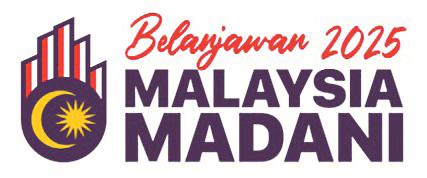PETALING JAYA: The Malaysian government has affirmed its commitment to enhancing the domestic business ecosystem in 2025 through strategic investments and tax reforms that drive economic growth and competitiveness.
Prime Minister Datuk Seri Anwar Ibrahim said Malaysia aims to remain competitive as a destination for multinational enterprises by offering streamlined investment procedures through the Malaysian Investment Development Authority and specific tax breaks for industries that align with environmental, social, governance principles.
Budget 2025 shows the government has taken various initiatives to encourage foreign direct investment.
The government, through Budget 2025, will introduce a more structured approach to attracting foreign investments by focusing on high-value sectors and enhancing tax incentives.
Special focus is given to strategic industries such as semiconductors, renewable energy and advanced manufacturing.
The government has outlined ambitious goals to develop Malaysia’s potential in these industries, with targeted funding and tax incentives. For example, Khazanah Nasional has further committed RM1 billion to support the semiconductor industry, helping local businesses benefit from the growing global demand.
One key initiative announced in the Budget is the introduction of a New Investment Incentive Framework that focuses on high-value activities, particularly in the electrical and electronics (E&E) sector. This aims to attract investments that create high-paying jobs and generate value-added products, boosting local industry capabilities.
The National Energy Transition Roadmap heavily supports green energy industries, particularly those engaged in solar, hydrogen, and carbon capture technologies.
Budget 2025 introduced incentives, including tax exemptions, for companies involved in carbon capture, utilization, and storage projects. This helps businesses move toward sustainability and opens new market opportunities in environmental tech.
The Budget also introduced export incentives for high-value activities in sectors such as E&E, including integrated circuit design and advanced materials production. These incentives aim to strengthen Malaysia’s role in the global supply chain and promote local businesses in international markets.
Touching on tax, Budget 2025 seeks to expand the tax base by improving tax collection mechanisms. This includes introducing progressive tax measures such as the 2% dividend tax on dividend incomes above RM100,000 and revising the Sales and Service Tax to focus more on luxury goods and services without burdening the general population.
Subsidies, particularly fuel and electricity, will be increasingly targeted, ensuring that the wealthiest and foreign users no longer benefit unfairly.
This shift in subsidy management is expected to generate savings that can be reinvested into public welfare and infrastructure projects, indirectly benefiting businesses and small and medium enterprises.
SMEs, which form the backbone of Malaysia’s economy, have been given special attention.
The government will provide financial assistance through the New Industrial Master Plan and strategic funds, such as the Strategic Co-Investment Fund and the National Industry Development Fund. These funds are expected to spur the growth of SMEs by providing capital for innovation and expansion, particularly in key sectors like technology, renewable energy, and advanced manufacturing.
Moreover, partnerships with multinational enterprises will allow local suppliers to benefit from tax incentives when they integrate into global supply chains.
For domestic businesses, Budget 2025 encourages more government and private sector collaboration through Pelan Induk Kerjasama Awam-Swasta. This plan will attract RM78 billion in private investments and create 900,000 job opportunities by 2030.
Key projects include healthcare infrastructure such as Hospital Sultanah Aminah 2 and major transport projects, allowing businesses to bid for contracts in these sectors.
Under the digital transformation agenda, the government has emphasised the importance of digitalisation for businesses, with the introduction of MyDigital ID, a centralised platform to streamline business processes and reduce bureaucracy.
Businesses are encouraged to adopt digital solutions for better efficiency, and the government will continue supporting industries moving toward digitalisation through incentives and training programs.
The government is keen to promote innovation, especially in emerging sectors such as artificial intelligence (AI), robotics, the Internet of Things, fintech and sustainable technologies.
Special tax deductions are introduced for institutions offering specialised courses in these areas to ensure the availability of a skilled workforce, which will support the long-term growth of these industries.
Companies investing in research and development will benefit from expanded tax deductions and grants to encourage innovation, which is vital for businesses in sectors like technology, healthcare, and energy to stay competitive globally.
In summary, Budget 2025 provides a comprehensive framework to stimulate the business environment, encourage SME growth, and enhance Malaysia’s industrial competitiveness while managing fiscal challenges through targeted subsidies and tax reforms.
Industries focused on sustainability, technology and high-value exports stand to benefit significantly from these initiatives.









